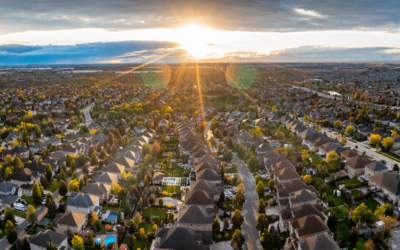
“Here’s some information to help you get started so you’re not caught off guard when it’s time to close on your home.”
As a homebuyer, it’s important to plan and budget for the expenses you’ll encounter when you purchase a home. While most people understand the need to save for a down payment, a recent survey found 41% of homebuyers were surprised by their closing costs. Here’s some information to help you get started so you’re not caught off guard when it’s time to close on your home.
What Are Closing Costs?
One possible reason some people are surprised by closing costs may be because they don’t know what they are or what they cover. According to U.S. News and World Report:
“Closing costs encompass a variety of expenses above your property’s purchase price. They include things like lender fees, title insurance, government processing fees, upfront tax payments and homeowners insurance.”
In other words, your closing costs are a collection of fees and payments made to a variety of individuals and organizations who are involved with your transaction. According to Freddie Mac, while they can vary by location and situation, closing costs typically include:
- Government recording costs
- Appraisal fees
- Credit report fees
- Lender origination fees
- Title services
- Tax service fees
- Survey fees
- Attorney fees
- Underwriting Fees
How Much Will You Need To Budget for Closing Costs?
Understanding what closing costs include is important, but knowing what you’ll need to budget to cover them is critical to achieving your homebuying goals. According to the Freddie Mac article mentioned above, the costs to close are typically between 2% and 5% of the total purchase price of your home. With that in mind, here’s how you can get an idea of what you’ll need to cover your closing costs.
Let’s say you find a home you want to purchase for the median price of $350,300. Based on the 2-5% Freddie Mac estimate, your closing fees could be between roughly $7,000 and $17,500.
Keep in mind, if you’re in the market for a home above or below this price range, your closing costs will be higher or lower.
What’s the Best Way To Make Sure You’re Prepared At Closing Time?
Freddie Mac provides great advice for homebuyers, saying:
“As you start your homebuying journey, take the time to get a sense of all costs involved – from your down payment to closing costs.”
The best way to understand what you’ll need at the closing table is to work with a team of trusted real estate professionals. An agent can help connect you with a lender, and together they can provide you with answers to the questions you might have.
Bottom Line
In today’s real estate market, it’s more important than ever to make sure your budget includes any fees and payments due at closing. Let’s connect so you have the knowledge you need to be confident going into the homebuying process.
To view original article, visit Keeping Current Matters.
Why Home Sales Bounce Back After Presidential Elections
As has been the case before, once the election uncertainty passes, buyers and sellers will return to the market.
Why Your House Will Shine in Today’s Market
If you’re thinking about selling, the shortage of homes for sale means your house is likely to get some serious attention from buyers.
How Long Will It Take to Sell Your House?
If you’re looking for ways to make your move happen as quickly as possible, partnering with a great local agent is the key.
Planning To Sell Your House in 2025? Start Prepping Now
By starting your prep work early, you’ll give yourself plenty of time to get your house market-ready by the end of the year.
What To Expect from Mortgage Rates and Home Prices in 2025
With home prices projected to rise at a more moderate pace, 2025 is shaping up to be a more promising year for both buyers and sellers.
Why Did More People Decide To Sell Their Homes Recently?
As rates came down at the end of the summer, more people jumped into the market and decided to make their move.





